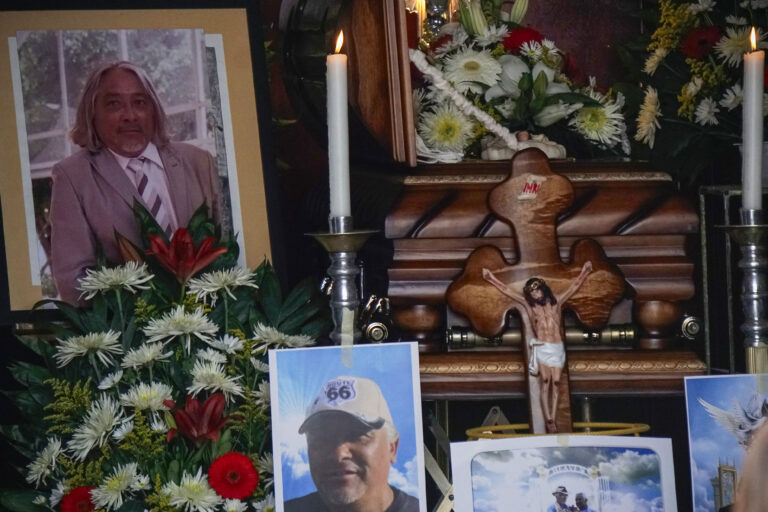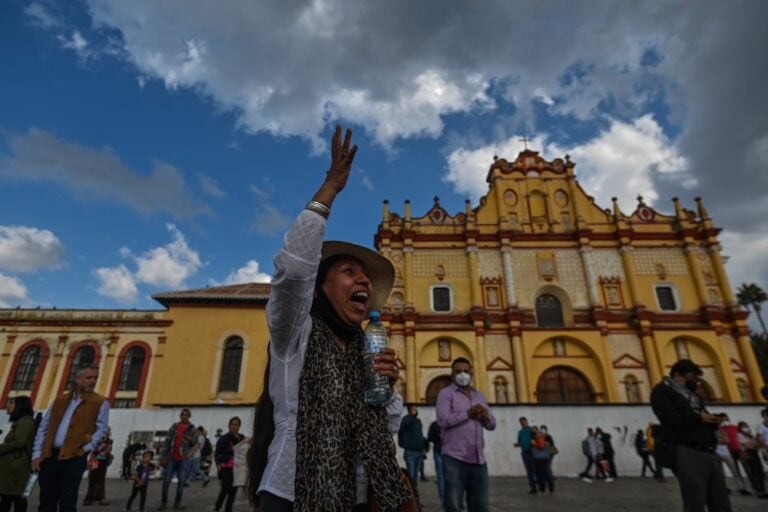(CENCOS/IFEX) – “Libre en el Sur”, a local free monthly newspaper distributed in the Benito Juárez district (DBJ) of Mexico City, has been harassed and pressured by the district’s delegate, Germán de la Garza, and members of his team, for publishing interviews and articles critical of his administration and of the use of public funds. […]
(CENCOS/IFEX) – “Libre en el Sur”, a local free monthly newspaper distributed in the Benito Juárez district (DBJ) of Mexico City, has been harassed and pressured by the district’s delegate, Germán de la Garza, and members of his team, for publishing interviews and articles critical of his administration and of the use of public funds. “Libre en el Sur” has a circulation of approximately 12,000, was founded in 2003, and is distributed in various neighbourhoods in DBJ. The district is home to an economically well-off segment of the population; therefore, its governance has considerable economic and political repercussion.
The newspaper’s directors told CENCOS that the problems began when “Libre en el Sur” published an interview about a public works project – a well – in which they quoted critical comments by Alfredo Vinalay – the local representative to the Chamber of Deputies and a member of the same party as De la Garza, the National Action Party (Partido Acción Nacional, PAN). In the newspaper’s 17 April 2007 issue, Vinalay commented that Garza was insensitive in having the well built without consulting the community, saying it would cause environmental damage; Vinalay also criticised Garza for not seeking funding from Mexico City’s legislative assembly to repair leaks which were leading to 40 percent of the water being wasted.
On 18 April, 2007, presumably in retaliation for the Vinalay interview, a resolution was passed at the DBJ council, cancelling the district’s contract with “Libre en el Sur” for public advertising, which violated the contract signed by both parties. “Libre en el Sur” says it has never received either information or contract tenders from the district government after the Vinalay interview, other than what they are able to access through the district’s website.
On 16 May there was an attempt to impede distribution of the newspaper in a public place, in the plaza in front of the district offices, during a day designated by the district for citizens to gather. At the request of the district’s communications officer, the newspaper was not allowed into the open-air tents set up for that purpose.
Martín Roldan, columnist for the online edition of “Libre en el Sur”, was videotaped in an intimidating manner by district personnel who argued that the footage was for the district administration’s files. Finally, after protests by “Libre en el Sur” directors, the distribution of the newspaper was allowed. The directors have been given to understand by district officials that if the newspaper were to modify its editorial line, “which they don’t like”, the problem of the advertising contracts could be resolved.
Similarly, when De la Garza issued his first report on his administration, on 1 October 2007, “Libre en el Sur” reporter Mariana Ledesma was denied accreditation, although at the last minute she was allowed to go into the press room. The newspaper’s director, Francisco Ortiz Pardo, and subdirector Francisco Ortiz Pinchetti, were denied both accreditation and access to the press room.
Given this series of problems, the newspaper filed a complaint about De la Garza before the District Human Rights Commission.
Amid this series of acts of aggression, Ortiz Pinchetti received a threatening message, on 13 November 2007, “for saying so many lies.” He contacted the office of Mexico City’s special prosecutor for investigations to do with the safety of individuals and institutions. Ortiz Pinchetti, with 35 years of experience as a journalist, was a reporter with “Excélsior” and “Ultimas Noticias” – two of Mexico’s largest newspapers – as well as a founder of “Proceso” weekly, director-general of Notimex – a Mexican news agency – the author of several books, and a founder of a journalists’ union.
The district authorities have not renewed their advertising contract with “Libre en el Sur” for 2008. This violates the Inter-American Human Rights Commission standards, which stipulate that media outlets cannot be denied advertising income on a discriminatory basis.
The district’s actions are limiting the pluralism of information and may lead to the disappearance of “Libre en el Sur”, which would also restrict the public’s access to information.


